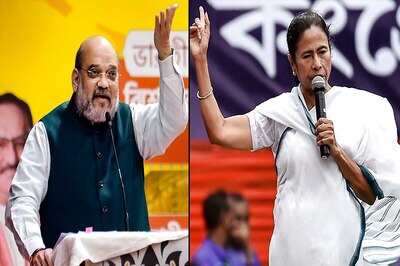
views
NEW DELHI/SHANGHAI: Five Indian nationals from a remote eastern state who had been detained by Chinese authorities in a region bordering Tibet were handed over to Indian authorities on Saturday, the Indian army said.
“Individuals will now be quarantined for 14 days as per COVID-19 protocol and will thereafter be handed over to their family members,” Lieutenant Colonel Harsh Wardhan Pande, a spokesman for the Indian army, said in a statement.
Pande said the five youths had “inadvertently strayed” across the de-facto border while foraging and hunting, adding that two other such incidents had taken place this year in India’s Arunachal Pradesh state, which borders China.
However, a Chinese state-backed tabloid said the five were Indian intelligence agents dressed as hunters, disputing claims that they had been kidnapped.
Bilateral relations have been unusually tense since a clash at a disputed border area in June that killed 20 Indian soldiers, with an unknown number of Chinese casualties. [L4N2E215E]
On Tuesday, following reports that five Indians from the state of Arunachal Pradesh had gone missing, an Indian minister said that the Chinese People’s Liberation Army confirmed they had been found in China.
Their disappearance coincided with a border confrontation that week in the western Himalayas, during which both accused the other of firing in the air.
The two sides have long observed a protocol avoiding the use of firearms in the undemarcated frontier, though violence has erupted in the past.
On Thursday, Chinese State Councillor Wang Yi and Indian Foreign Minister S. Jaishankar met in Moscow and agreed to de-escalate the border tensions.
Global Times editor-in-chief Hu Xijin said on the Chinese Twitter-like app Weibo that China-India relations were stabilising. Observers of China’s foreign relations often watch Hu’s messages on social media to gauge sentiment from Beijing policymakers.
“It seems that the successive meetings between the Chinese and Indian defence ministers and foreign ministers have played a positive role in cooling the situation,” Hu wrote.
“In addition, the People’s Liberation Army defended every inch of the country’s land, and the Indian Army ultimately failed to take advantage of it.”
Disclaimer: This post has been auto-published from an agency feed without any modifications to the text and has not been reviewed by an editor




















Comments
0 comment